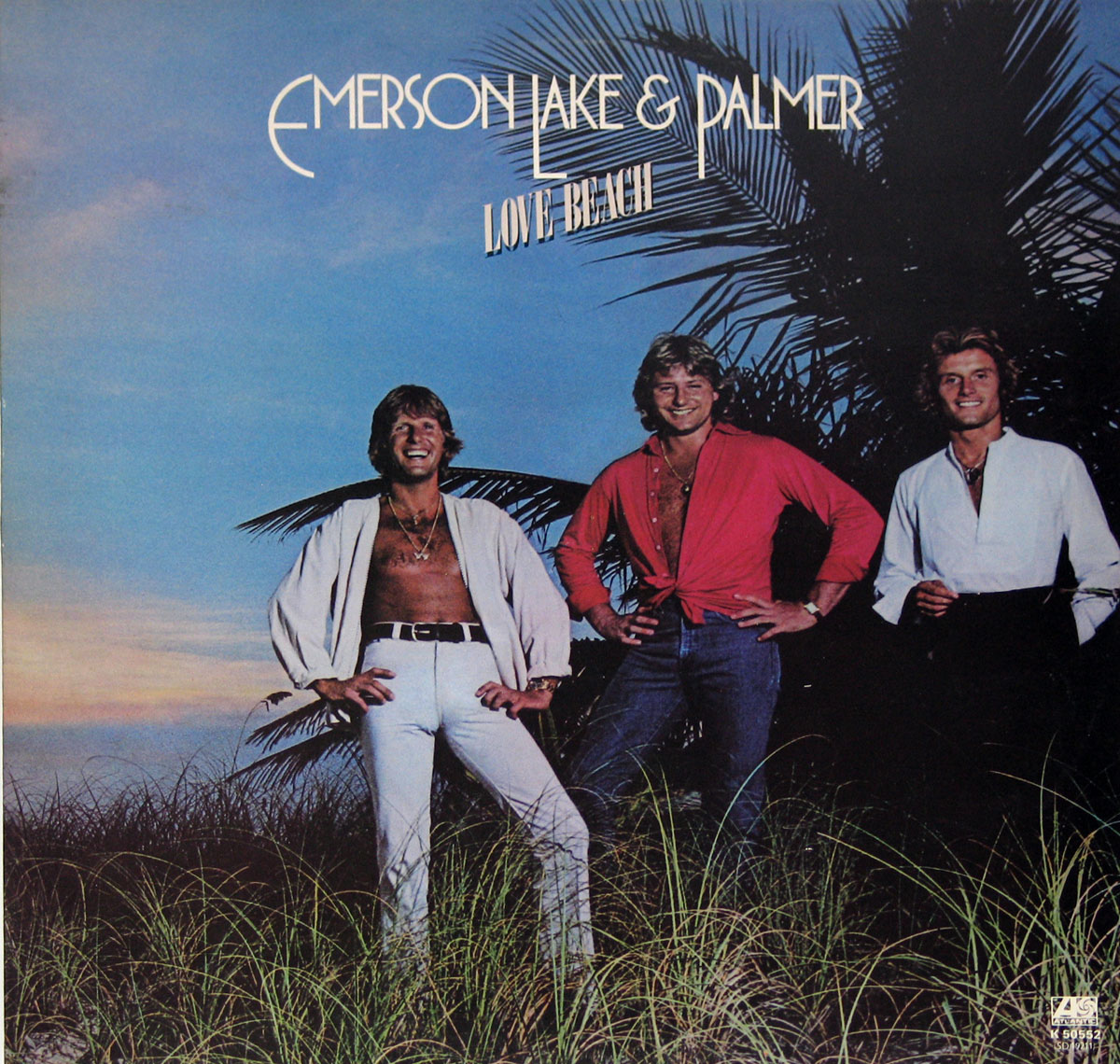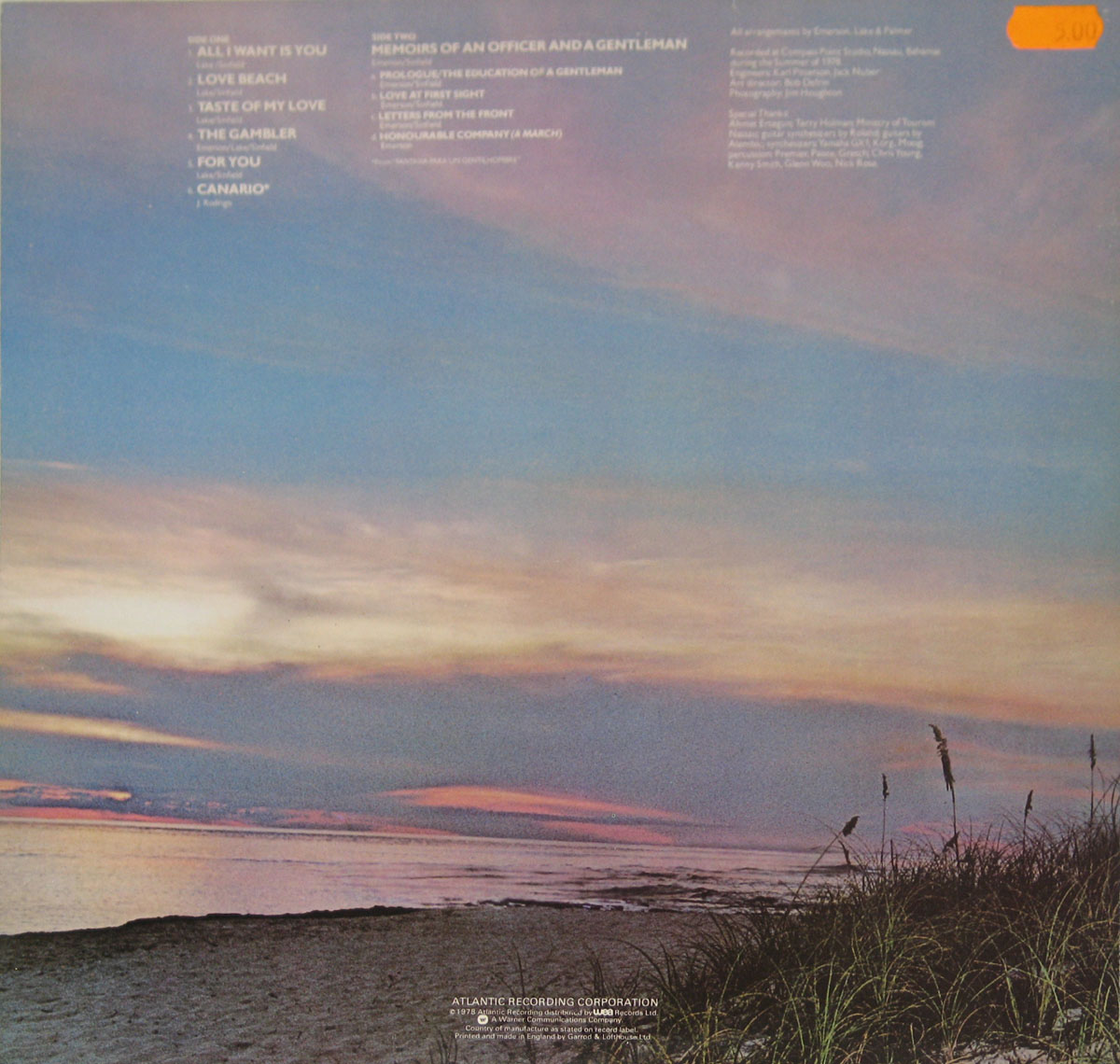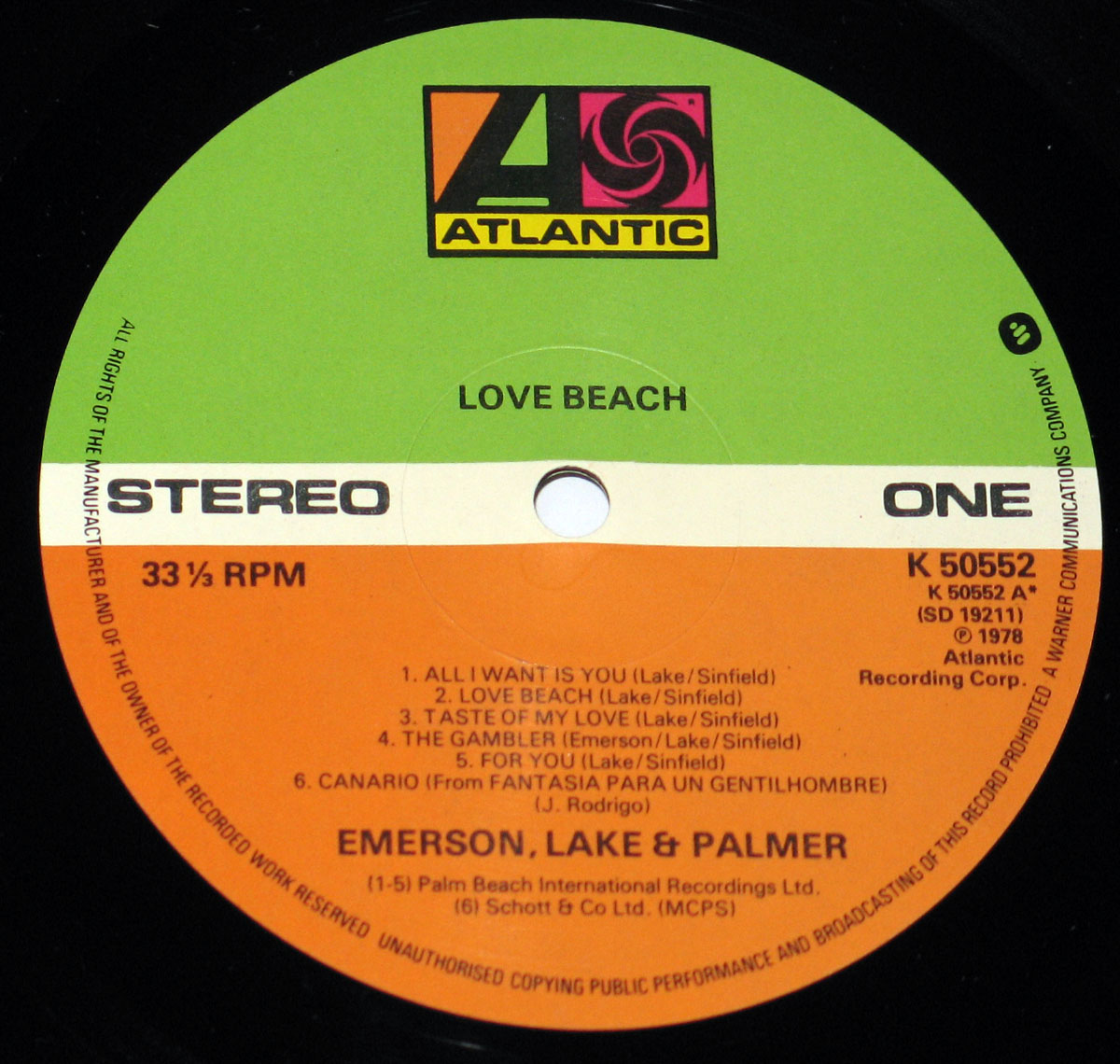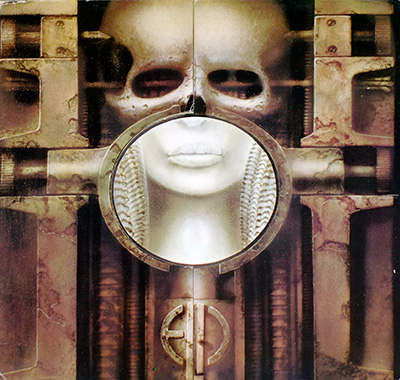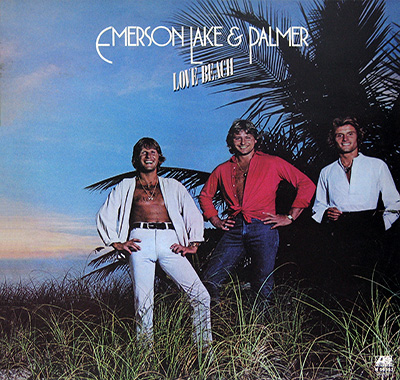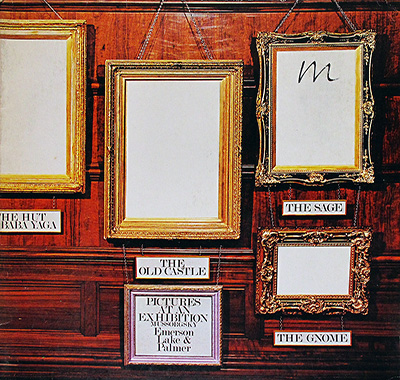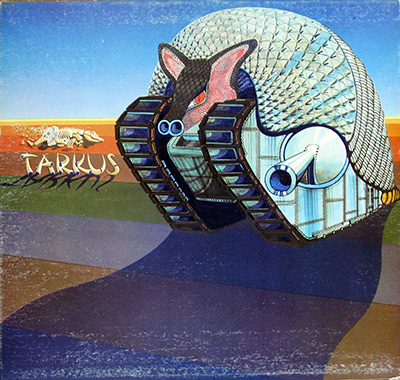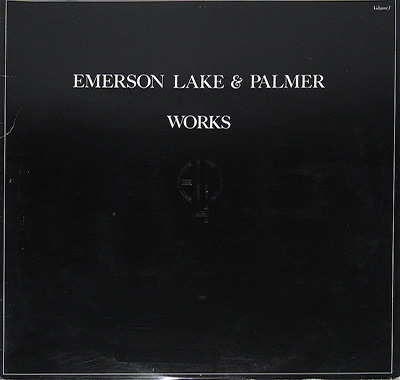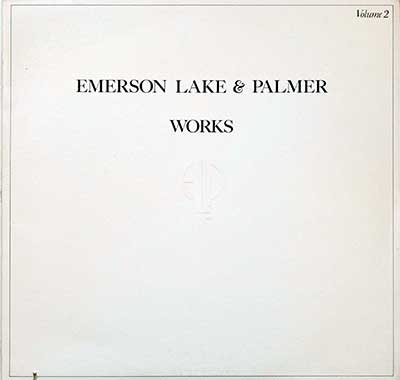Album Description:
ELP, short for Emerson, Lake & Palmer, is widely regarded as one of the most influential progressive rock bands of the 1970s. Known for their virtuosic musicianship and ambitious compositions, the trio consisting of keyboardist Keith Emerson, bassist Greg Lake, and drummer Carl Palmer captivated audiences with their unique blend of classical music, jazz, and rock elements. However, their 1978 studio album, "Love Beach", was met with mixed reviews and marked a significant departure from their earlier works.
"Love Beach" was primarily a result of contractual obligations with their record company. The band had completed their previous album, "Works Volume 2", which was a double LP featuring individual contributions from each band member. Despite being critically acclaimed, it failed to achieve the commercial success of their earlier releases. As a result, their record label demanded another album to fulfill their contractual obligations.
The album's cover artwork drew particular attention and criticism. It featured a photograph of the band members on a beach, dressed in white suits, which some likened to the style of disco stars like the Bee Gees. This departure from their usual artistic direction added to the disappointment felt by both the band and their fans.
Musically, "Love Beach" took a more accessible and commercially oriented approach compared to their earlier albums. The songs featured shorter and more straightforward structures, with a stronger emphasis on melodic hooks. While this shift in style may have appealed to a broader audience, it alienated some of the band's loyal fan base who had come to appreciate their complex and intricate compositions.
The album opens with the track "All I Want is You", a catchy and radio-friendly song that showcases Greg Lake's soothing vocals. It sets the tone for the rest of the album, with its melodic hooks and straightforward lyrics. Other notable tracks include "Taste of My Love" and "The Gambler", both of which feature energetic performances from all three band members but lack the progressive complexity that defined their earlier works.
Despite the mixed reception, "Love Beach" did achieve moderate commercial success, eventually earning a gold certification. However, it failed to make a significant impact on the charts, peaking at #55 on the Billboard 200. The album's lukewarm reception and the band's dissatisfaction with the final product led to a hiatus for Emerson, Lake & Palmer, with each member pursuing solo projects.
In retrospect, "Love Beach" stands as a pivotal moment in Emerson, Lake & Palmer's career. It represented a departure from their progressive rock roots and a move towards a more accessible sound. While the album may have attracted a broader audience, it also left behind the intricate and complex compositions that had defined their earlier works. Nevertheless, ELP's legacy in the world of progressive rock remains intact, and their earlier albums continue to be celebrated as masterpieces of the genre.
Band Members and Musicians on: ELP Emerson Lake Palmer Love Beach
|
Band-members, Musicians and Performers
- Keith Emerson: keyboards
- Keith Emerson – Keyboards
The guy who made the Hammond and Moog sound like they were trying to escape the stage. Read more... Keith Emerson was the keyboard alchemist who made prog rock sound like a classical recital crashed into a rock club. I first caught him in The Nice (1967-1970), where he pushed rock into Bach, jazz, and sheer volume, then he helped launch Emerson, Lake & Palmer (1970-1979; later reunions 1990-1999) and turned the Moog into a headline act. His rig of Hammond, piano, and synths wasn't decoration; it was the whole plot, and he played it like a restless conductor. In the 80s he detoured through Emerson, Lake & Powell (1985-1986) and the trio 3/Emerson, Berry & Palmer (1988-1989), always chasing bigger sounds than the stage could hold, even when the band name changed.
- Greg Lake - Vocals, Bass Guitar
- Greg Lake – Bass, Vocals, Guitar
The voice behind "Lucky Man" and the basslines that kept prog from floating into space. Read more... Greg Lake was the warm-voiced anchor who made prog rock feel human even when the music went full sci-fi. I first heard him with King Crimson (1969-1970), where his bass, acoustic guitar, and vocals helped define the debut-era drama. Then he co-founded Emerson, Lake & Palmer (1970-1979; reunions 1990-1998), writing and singing the tunes that gave all that virtuosity a heartbeat. In the mid-80s he took another run with Emerson, Lake & Powell (1985-1986), proving the songs still landed even when the lineup shifted. Before the big leagues, he cut his teeth in The Gods (1967-1968), already aiming for bigger stages than the clubs could offer, with a songwriter's grin.
- Carl Palmer: drums, percussion
- Carl Palmer – Drums, Percussion
The human metronome who could still swing while the time signatures did parkour. Read more... Carl Palmer was the turbo-charged drummer who made prog rock feel like a high-speed chase in a concert hall. Before the supergroup mythology, he cut his teeth with The Crazy World of Arthur Brown (late 1960s) and Atomic Rooster (1969-1970). Then he strapped in with Emerson, Lake & Palmer (1970-1979; reunions through the 1990s) and turned odd meters into something you could actually head-nod to. After ELP’s first run, he helped launch Asia (1981-1986, 1989-1992, 2006-2022), where his precision kept the arena hooks from going soft. Palmer’s playing is all snap, elegance, and controlled chaos—the kind of drummer who makes keyboards and guitars behave by sheer force of timing.
- Peter Sinfield: lyrics
|
